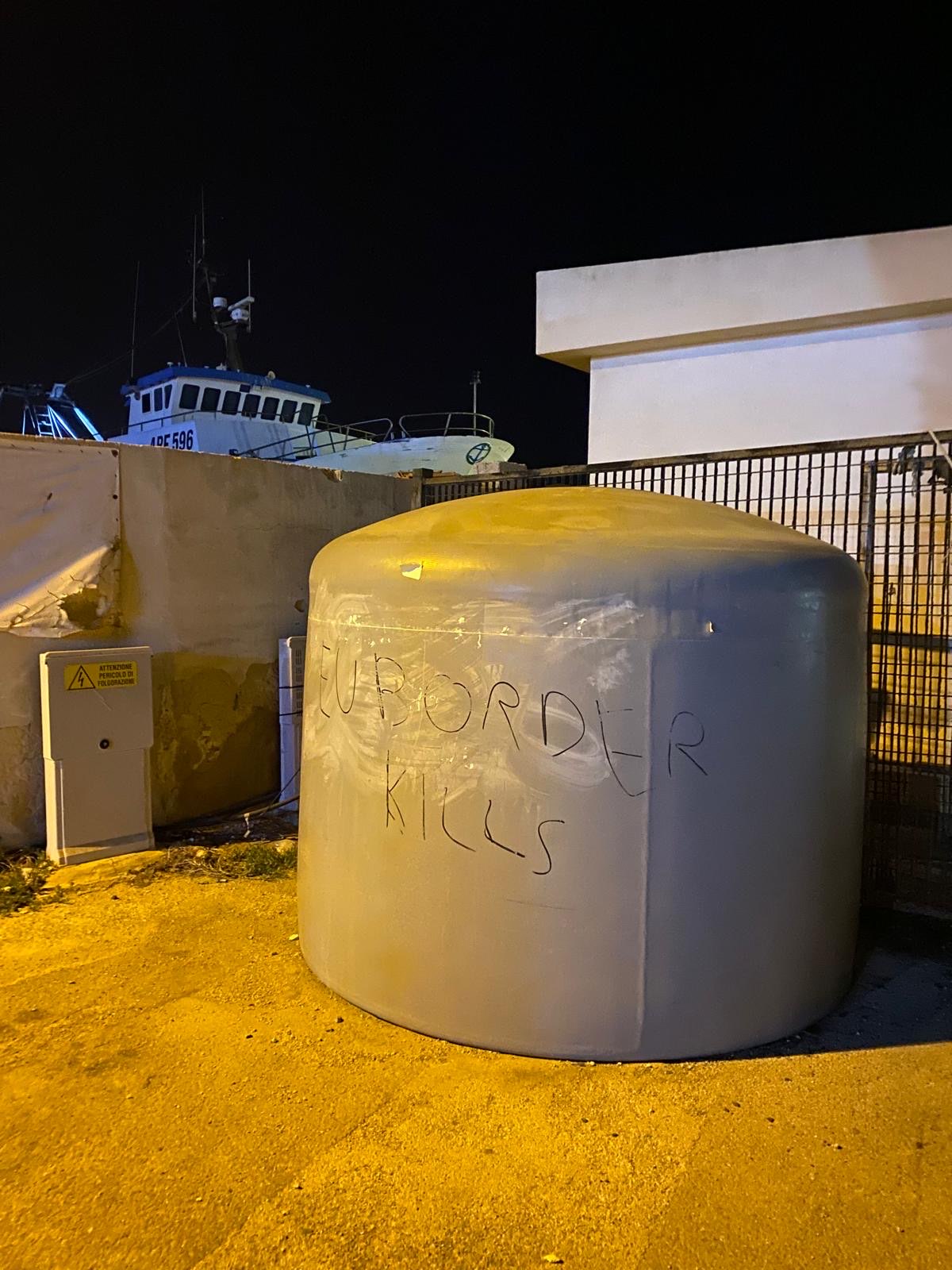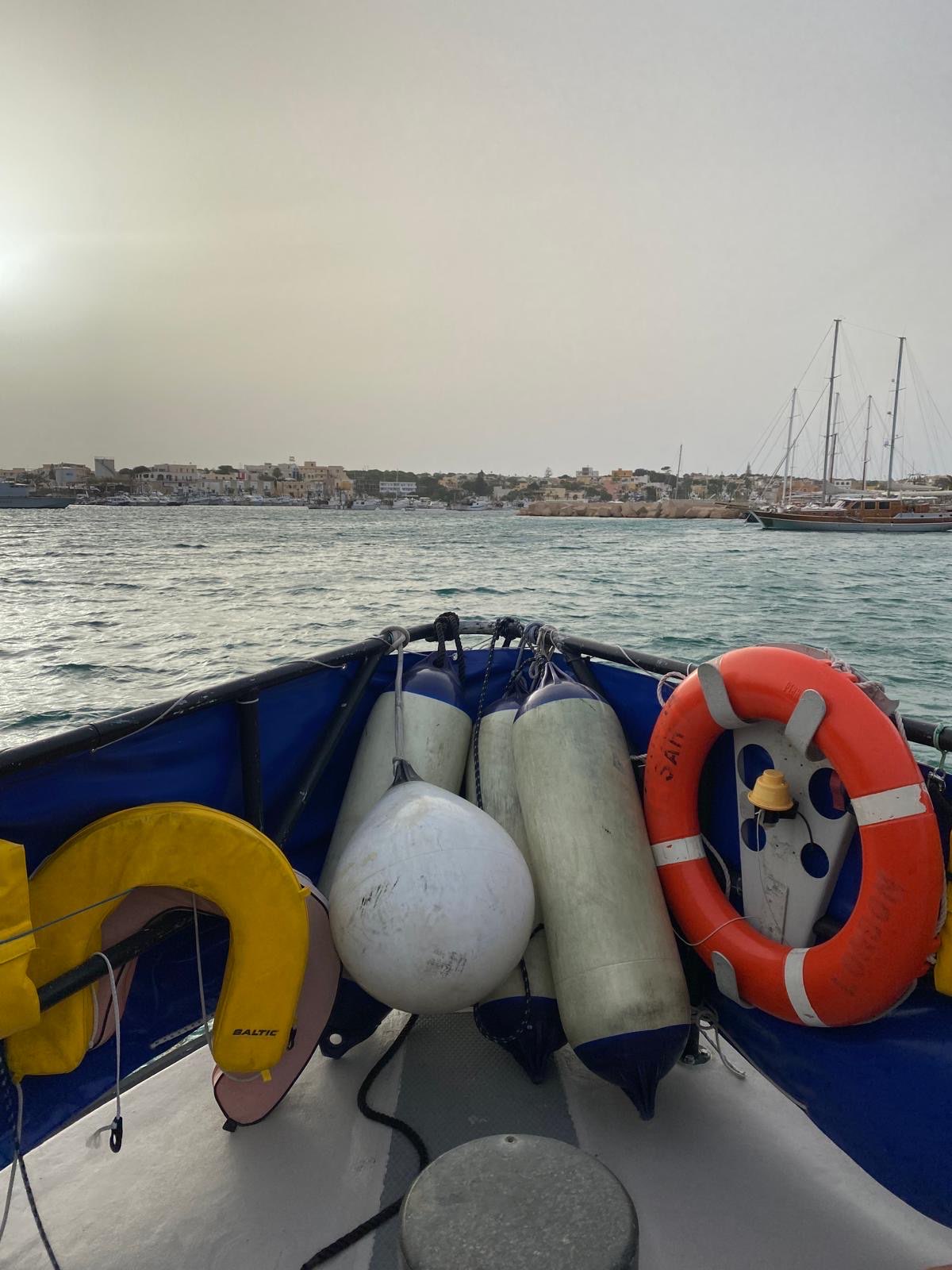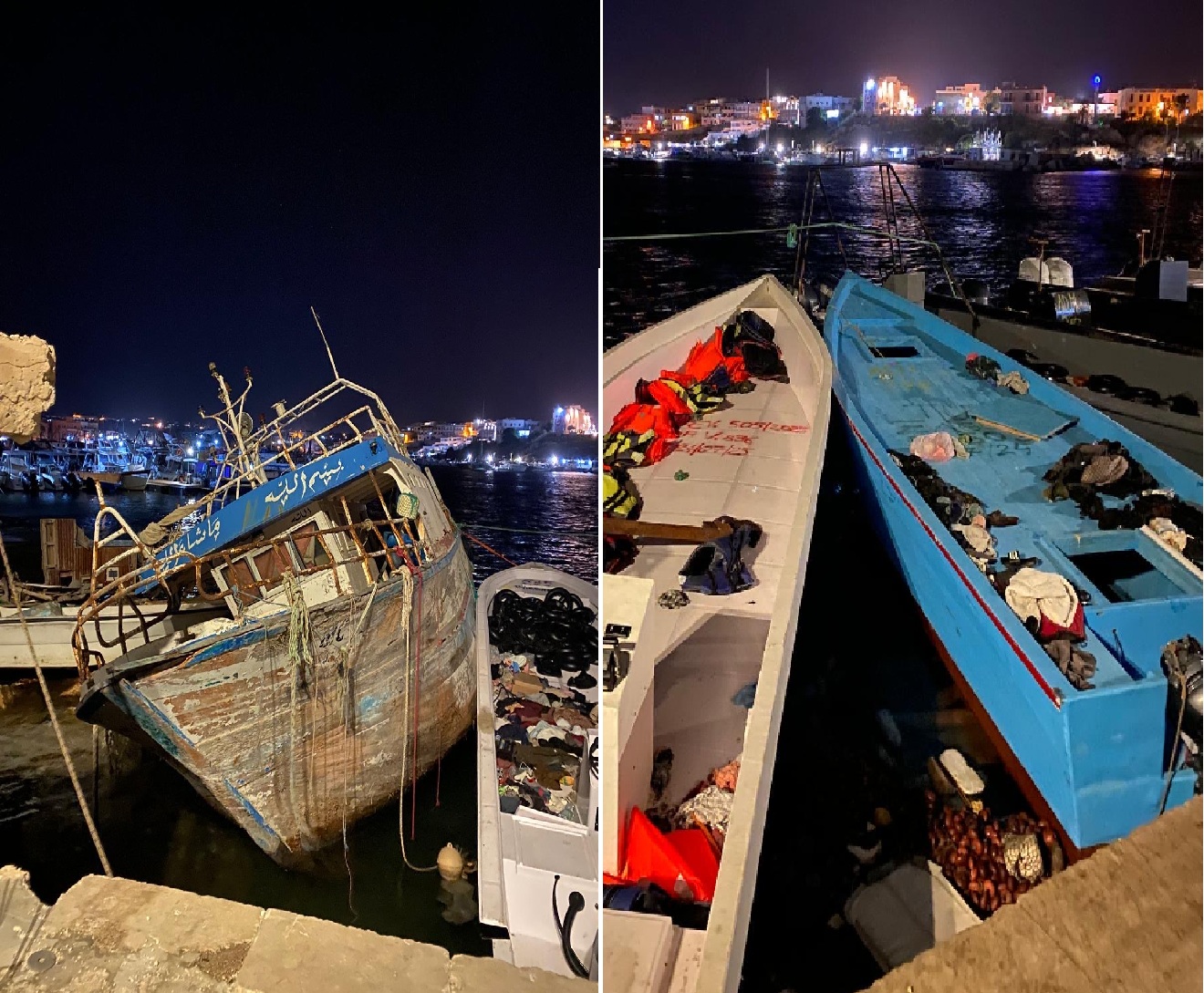More than just another drama... ACT NOW!
Shortly after midday on Wednesday 13th August, 2025, 61 survivors from a shipwreck - whose circumstances remain unclear in many respects - arrived and disembarked at the Favarolo pier in Lampedusa, Italy. Twenty-three bodies were recovered from the sea, including 13 men, 7women and 3 minors, while an unknown number of people remain missing. During the offboarding, it was tried to reconstruct the events based on the testimonies of some of the survivors. Two boats had reportedly left Tripoli, Libya, the night before, carrying a total of between 90 and 106 people. It seems that during the journey, one of the two boats sprang a leak, so many people moved to the other, larger boat, which may have been double-decker. Some say that this move made the boat unstable and caused it to capsize; others speak of a sudden wave. Many questions remain unanswered: how was it possible for this to happen just 14 miles from the Italian coast in a stretch of sea patrolled by Frontex and the Italian Coast Guard? Why were the Italian authorities unable to intervene in time? How come the usual disembarkation procedure was bypassed? Usually, when a boat in distress is intercepted, international organisations and civil society volunteers are notified in advance, as we are officially authorised to be present at the pier and to welcome arriving people on the move. This time, no notice was given so we arrived as soon as we realised what was happening.

Event though some of the questions related to this case are impossible to answer, what strikes us the most is that once again the term "tragedy" is being used to describe what happened. This shipwreck cannot be defined as an accident, it is not an isolated event: it is the direct result of political choices. Borders kill. Talking about "tragedy" does not echo the State responsibility - and accountability - at stake: because every lifeless body is the product of laws that prevent freedom of movement, of agreements that finance rejection, of a system that reduces people to mere numbers. Yet, once again, behind the numbers, there are faces, stories and families. Actually, in the days following the shipwreck, some family members independently managed to reach Lampedusa, mainly to have access to further information, claiming their right to identify the bodies. We host them and stand with them. We were together during the long hours of waiting outside the hotspot, witnessing fragmented and sometimes superficial communications about the transfer of the bodies, at a time that was already painful and delicate in itself.

Living and witnessing first-hand these dynamics on the island, thanks to the space we have created, often means coming to terms with our powerlessness in the face of a system that arbitrarily chooses to behave inhumanely, a reality that fuels anger and strengthens the desire to support and fight alongside those who face this journey.
This unbalance between inhumanity and resistance is reflected in the story of a survivor, a mother who lost her newborn daughter and husband. Despite her ordeal and her pain, she found the strength to express her willing to stay beside the dead bodies of her beloved ones in Agrigento. She was supported in this by those who allowed her to express her will and make her voice heard. Such achievements are unfortunately rare, since the obstacles and difficulties experienced by each person who arrives are part of a broader context in which inhumanity prevails, as highlighted by the current political and institutional choices.
Indeed, as if the failure to activate adequate rescue responses was not enough, the aforementioned logic is accompanied by a growing criminalisation of NGOs and the civil SAR fleet, which are increasingly subject to administrative detentions from Italian authorities[1] and unjustified violence on behalf of so-called Coast Guards from third countries[2][3], which hinders NGO and overall SAR work instead of recognising their contribution.
But despite all this, solidarity persists on the island. Together with other civil society organisations, we believe in the strength of a network that is built day by day and allows us to collaborate with associations active outside the island. It is the same network that allows us to welcome, document and resist together.
During the couple of weeks following the shipwreck, we have been in constant contact with our colleagues at Memoria Mediterranea to monitor the transfer of the bodies and share information with the families we have met.

In the meantime, many journalists have arrived on the island to document and to seek interviews and comments. We believe that it is not enough to report the news and turn the spotlight on Lampedusa when there is a shipwreck that makes headlines. It must be recognised and clarified that we are constantly living and witnessing a determined policy on the European border of the central Mediterranean that produces systemic shipwrecks. What the media tell us, defining it as a tragedy, must instead be urgently redefined as a massacre. The real tragedy is the very existence of these (necro)politics: States that decide who can live and who can die, that deny freedom of movement and that force people to embark every day. It is not enough to mourn the dead; the States must be held accountable, we demand justice, and claim another narrative. The only possible solution is the one that no one wants to mention: abolish borders.
We speak out against the manoeuvres used to hide the truth!
We object the victimising narrative of the media and the authorities!
We demand humanity and rights for all people on the move!
